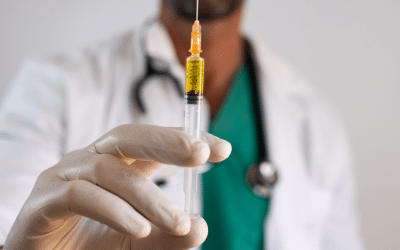The legislation concerning post-mortem organ donation, the subject of a very controversial amendment during Parliament’s discussion on the Health bill, was finally not modified in the version that the Senate has just ratified, during their final solemn vote on the entire text this past October 6th (1).
According to the current text, organ donation is governed by the principle of “presumed consent” by the deceased, except if explicitly refused beforehand. In practice however, only one family member need to voice his opposition to the doctors for the organs not to be harvested.
While the bill was being examined before the National Assembly, last March 19, Professor Jean-Louis Touraine, introduced an amendment before the Social Affairs Commission, which considerably hardened its policy: leaving the national register as the exclusive means of expressing refusal. This also aimed at excluding family members for a pre-required agreement, since their consent would no longer be necessary. (Article 46 ter).
In view of the numerous criticisms voiced to the MP’s following this vote, the government tabled another amendment at the public session on April 14, 2015. This amendment would soften the policy a little; stating that inscription on the national registry is not the exclusive means to express one’s refusal for organ donation. However, it maintains the aspect that family members would not be informed of the doctor’s decision.
On Wednesday July 22, 2015, the Senate Social Affairs commission eliminated this provision, in spite of the opposition by the Minister Marisol Touraine. The rapporteurs justified their position by stating that “the delicate character of bioethics topics justify that prior to legislative modifications the issues be evaluated in a calm environment, and subjected to widespread consultations. This is why the bioethics law includes a periodic review to be held before 2018 following a national consultation on Bioethics.
However, in the Senate’s public session on September 29, the Government tried to re-introduce this amendment (N° 1258), which was the object of a thorough discussion. In its’ formulation, this amendment provides that the “doctor inform the relatives of the deceased, prior to the removal of the organs, of the type and nature of the planned removal, in accordance with the good practices determined by the health minister in charge of the biomedical Agency. Organ donation can be practiced on persons having reached the age of majority as long as they have not, during their lifetime, made known their refusal for such a donation, mainly by means of the computerized national register intended for this use. This refusal can be revoked at any moment.”
The ethical challenges are clearly shown.
For MP Jean-Baptiste Lemoyne, “the amendment simply provides for the doctor to inform the family of the deceased. Nonetheless, there is a semantic shift of meaning which is not trivial”; and for René Danesi, this amendment “in any case resembles ‘nationalization’ of the bodies of the deceased. Although it might be the quickest, and easiest solution to implement, in my opinion it is morally indefensible, since the choice to donate one’s organs or not should be a personal, free will, and especially an informed decision.”
Concerning the question of presumed consent of organ donation, MP Dominique de Legge raised this question “Can organ donation be presumed? In my opinion, an act of this nature is by definition a voluntary decision, clearly and positively expressed. Whereas, a donation which is imposed, is no longer a donation.”
For Tugdual Derville, Alliance VITA’s General Delegate, « eliminating M. Touraine’s amendment is a step in the right direction. Rules concerning organ donation can only be modified when reviewing the bioethics law and this must follow a public and professional consultation. It is because organ donation remains a generous and selfless act, which saves numerous lives – reason why it should be encouraged – that it is particularly dangerous to present it as a quasi-automatic process.”
(1) A joint committee will convene in the next few weeks to try to balance out the positions between the MP’s and the senators on all the controversial subjects of this health law, before the final examination planned for each Chamber before the end of the civil year.



